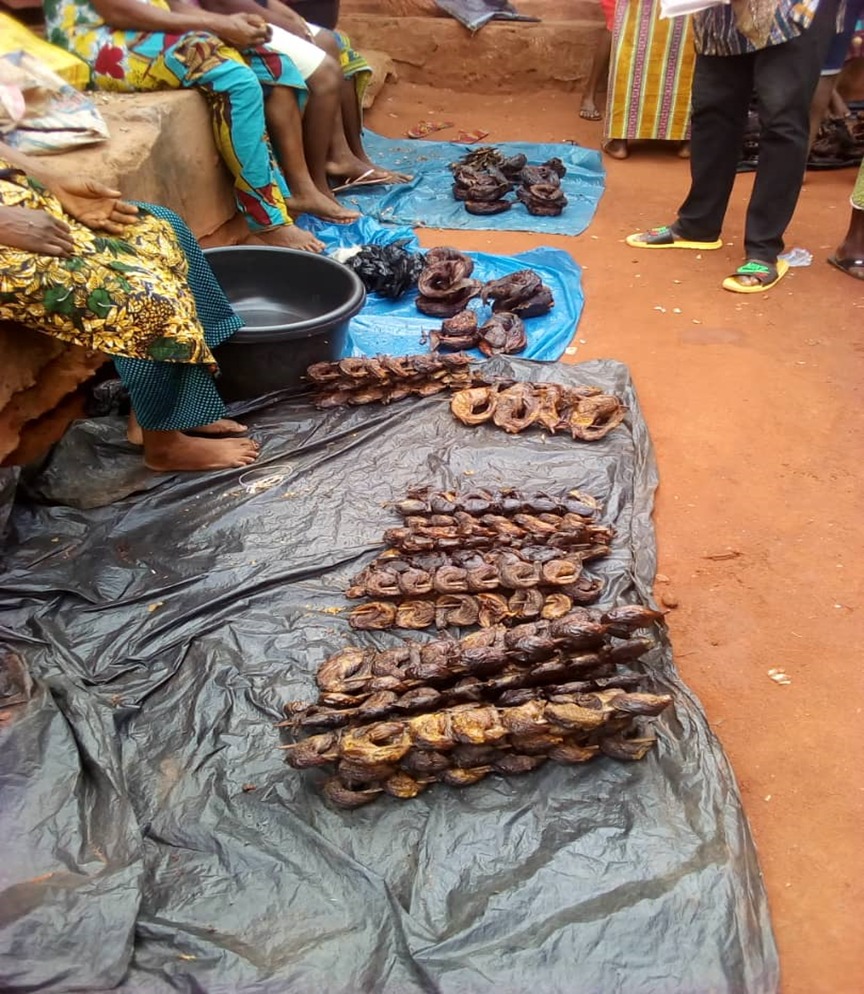Alan Llavore | Office of Marketing and Communications | (909) 537-5007 | allavore@csusb.edu

California State University, San Bernardino is spearheading a groundbreaking research project to combat acute child malnutrition in Nigeria by improving access to nutrient-dense, fish-fortified complementary foods.
The project, focused on children at high risk for acute malnutrition, particularly in the regions of northeast Nigeria, seeks to assess the effectiveness of Tom Brown Plus Fish, a fish-fortified cereal, in reducing relapse of acute malnutrition and providing sustainable nutrition solutions for low- and middle-income countries (LMIC).
The project is funded for $500,000 by the United States Agency for International Development (USAID), Feed the Future Fish Innovation Lab, and started on Jan. 1. Terezie Tolar-Peterson, CSUSB professor in the Department of Health Science and Human Ecology department chair, is the lead principal investigator.
"We are proud of our faculty like Dr. Tolar-Peterson who are pushing the boundaries of knowledge while fostering innovative research that addresses real-world challenges, such as child malnutrition in vulnerable communities spanning the globe,” said Sastry G. Pantula, dean of the College of Natural Sciences. “We wish to have healthy people living on a healthy planet in a healthy economy, and grants like these open doors for our students for a better future around the globe.”
The global team consists of CSUSB (implementing institution), Mississippi State University (partner institution), and the Food and Agriculture Organization of the United Nations (partner institution), while the Nigerian team includes Edo State College of Agriculture and Natural Resources (host country implementing partner) and the Center for Community Development and Research Network (partner institution).
Acute malnutrition remains a life-threatening challenge in LMICs, where nearly 3 million children under the age of 5 die each year due to severe malnutrition. For many survivors, this crisis results in long-term health and developmental challenges. Tom Brown Plus Fish offers a promising solution, utilizing locally sourced nutrient-rich dried fish powder to enrich children’s diets in at-risk communities. However, little data currently exists on the real-world effectiveness of such fish-fortified foods in preventing malnutrition or on the barriers small-scale processors face in bringing these solutions to market.

This persistence suggests that a comprehensive, multi-system approach is essential to effectively address malnutrition, combining food-based interventions, such as food-to-food fortification, with ongoing health; water, sanitation and hygiene; and social protection initiatives. Tom Brown Plus Fish specifically supports food-to-food fortification for children ages 6-59 months, using locally sourced nutrient-dense dried fish powder added to traditional cereals, such as Tom Brown and Garin Kunu.
This fortification approach significantly enhances the nutritional value of complementary foods by adding bioavailable micronutrients and essential proteins from dried fish, recognized by the Food and Agriculture Organization of the United Nations for supporting growth, development and cognitive function in infants and young children.
While early evidence suggests that fish-fortified complementary cereals may improve the diets of children in vulnerable households, critical gaps in knowledge remain regarding:
- How fish-fortified foods are incorporated into children’s diets under real-world conditions;
- The measurable health impacts of these foods on children’s outcomes; and
- Barriers small-scale processors face with supply, processing and distribution of fortified foods.
This CSUSB-led project aims to fill these gaps through comprehensive research in Nigerian states of Borno and Yobe, and testing for broader applicability in the Plateau State.
The CSUSB-led project, implemented in Borno, Yobe and Plateau states — critical regions in the U.S. Government’s Feed the Future Zone of Influence — has four main objectives aimed at addressing child malnutrition and supporting small-scale producers, primarily women and youth, who play a key role in processing and distributing fish-fortified foods:
- Evaluate Tom Brown Plus Fish’s effectiveness in preventing malnutrition relapse
- Identify and strengthen value chain activities for small-scale producers
- Conduct gender-sensitive market analysis
- Collaborate with UN agencies for integrated nutrition approaches
Through this initiative, CSUSB and its partners aim to:
- Provide evidence of the effectiveness of Tom Brown Plus Fish in preventing malnutrition relapse among vulnerable children under real-world conditions.
- Identify and promote sustainable technologies and practices along the fish-fortified food value chain, from production to household use.
- Establish scalable market, distribution and access pathways that support gender equality, social inclusion, and resilience in vulnerable communities.
Terezie Tolar-Peterson, professor in the Department of Health Science and Human Ecology, department chair, and lead principal investigator at CSUSB, expressed optimism about the project’s potential.
“This research will not only help us understand how best to deploy sustainable fish-based foods to combat acute malnutrition but will also offer a model that can be replicated across other regions in sub-Saharan Africa and beyond, providing a sustainable solution to one of the most pressing public health challenges,” said Tolar-Peterson.
This project aligns with the goals of the Global Food Security Strategy to improve global food security and nutrition by tackling the root causes of hunger and poverty and reflects Fish Innovation Lab’s cross-cutting themes of gender equality, resilience and capacity development.
Through this collaborative initiative, CSUSB and its global partners are not only contributing to global food security but also establishing a model that can be scaled to other regions facing similar nutrition challenges. Cal State San Bernardino is demonstrating its leadership in global research by spearheading this groundbreaking project to combat acute child malnutrition in Nigeria, showcasing its expertise in innovative, evidence-based solutions.
For more information about the project, please contact Tolar-Peterson at terezie.tolar-peterson@csusb.edu